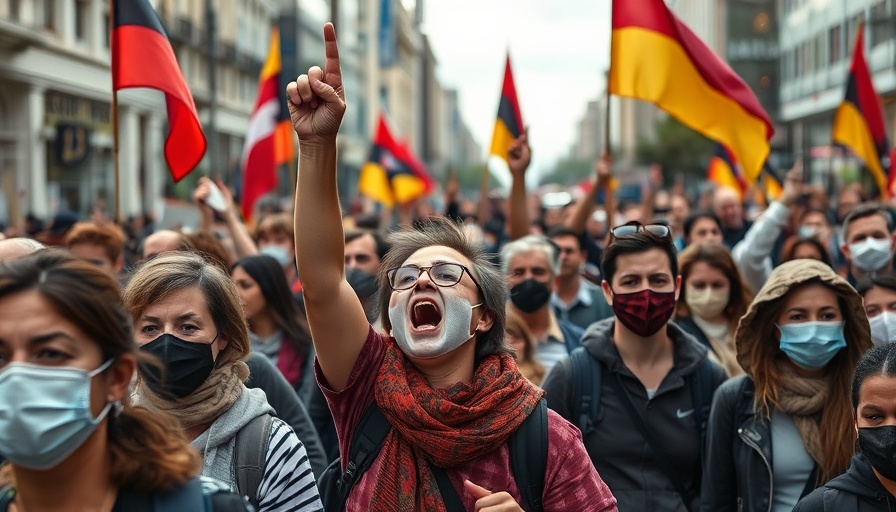
Understanding the Current Wave of Protests in Kenya
The protests sweeping across Kenya in 2025 serve as a sobering reminder of the nation's socio-political climate. Triggered primarily by economic distress and allegations of police brutality, these demonstrations echo the fervor of the Gen Z-led movements witnessed in 2024. The inciting incidents, particularly the deaths of public figures like blogger Alberto John and street vendor Bonfay, have fueled a collective outcry for justice, spurring protests under the hashtags #MustGo and #SiriNumbers. This digital-savvy generation has harnessed social media platforms to galvanize support and organize protests, altering the landscape of civic engagement in the country.
In 'Kenyan Protests Fact-Checked: Debunking Misinformation', the discussion dives into the whirlpool of false narratives and claims during these protests, prompting a comprehensive analysis of their implications.
The Rise of Misinformation in Chaos
In turbulent times, misinformation often proliferates, and the current protests are no exception. As public discontent grows, so does the susceptibility to misleading narratives. Such narratives are not only fabricated; they are strategically crafted to exploit fears and emotions. For instance, one viral claim, purportedly from a prominent newspaper, revealed a fabricated front page that never existed, showcasing the challenges in discerning fact from fiction amidst chaos. This incident illustrates how critical it is for consumers of news to verify claims through credible sources.
Examining Misinformation: The Fabricated Trump Video
Another notable example of misinformation involved a manipulated video of former President Donald Trump, disseminating altered statements about Kenya’s leadership. Using advanced voice cloning technology, the video misrepresents Trump's speech, leading many to accept fabricated claims as truth. The process of identifying such misinformation—employing tools like reverse image searches—highlights the importance of technological literacy in an age where anyone can create believable falsehoods.
The Importance of Verification During National Crises
The current context in Kenya underscores the paramount importance of verification. As misinformation gains traction, citizens must take proactive steps to discern truth from falsehood. By utilizing trusted news sources and fact-checking organizations such as Africa Check, the public can combat the rapid spread of misinformation. Staying informed requires critical thinking and an understanding that sensationalism often masks the truth. In moments like these, a careful approach to information consumption is more crucial than ever.
Engaging with Reliable Sources
Kenya's ongoing protests have spotlighted the critical role of media literacy. Citizens are encouraged to pause before sharing sensational claims and to evaluate the authenticity of the news they consume. Engaging with reliable sources not only shields individuals from misinformation but also fortifies societal integrity. Political and social narratives can greatly influence public opinion and action; therefore, ensuring the accuracy of shared information is essential for maintaining a healthy democracy.
In analyzing the current socio-political landscape through the lens of the recent protests and the misinformation that accompanied them, it becomes clear that there is a pressing need for a collective effort to promote truthful dialogue. Knowledge is power, and equipping oneself with the tools to discern fact from fiction must be a priority for all citizens.
 Add Row
Add Row  Add
Add 


Write A Comment